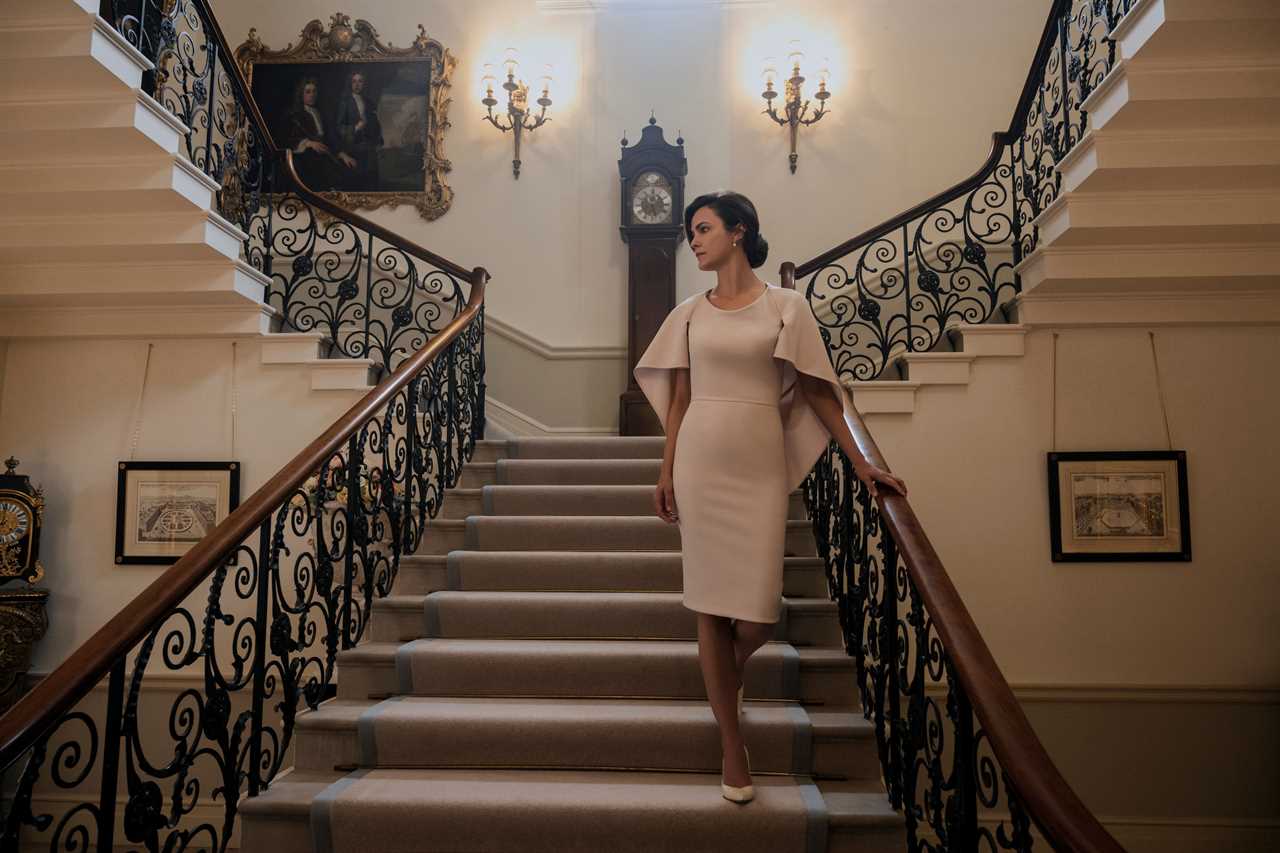
State Department employees around the world have been bingeing “The Diplomat,” a new Netflix show starring Keri Russell. And many of them find it preposterous — and utterly amusing.
The show — centered on a U.S. ambassador to the U.K. named Kate Wyler — is fiction. But it veers from hyper-specific accuracy (“Did you call the RSO?”) to genuinely ridiculous moments in ways that are keeping even the most jaded foreign policy practitioners coming back for more.
“There’s a lot of detail in there that’s really, really smart,” said Aaron Snipe, a spokesperson with the U.S. Embassy in London. But, “as a career diplomat, I must say you’re watching it thinking, ‘Wow, my job is not nearly as sexy as Ambassador Wyler’s romps through foreign policy.’”
Staff for “The Diplomat” sat down with officials from the U.S. Embassy during production to try to get details right, and Snipe said the ambassador and the rest of the team were fans of the show.
“I loved the show,” said Lewis Lukens, a former career diplomat who served as the No. 2 at the U.S. embassy in London, where much of the action takes place. “It was realistic enough to be almost plausible.”
“The Diplomat” has also caused buzz in the U.K. where it’s become one of Netflix’s most popular shows. Parliamentarians, political journalists and officials were among those celebrating when the streaming service announced Monday the show had been renewed for a second season.
In a statement, show creator Debora Cahn said, “The feedback’s been a real joy.” But read on for a reality check on some of the show’s angles (and beware, there are many, many spoilers):
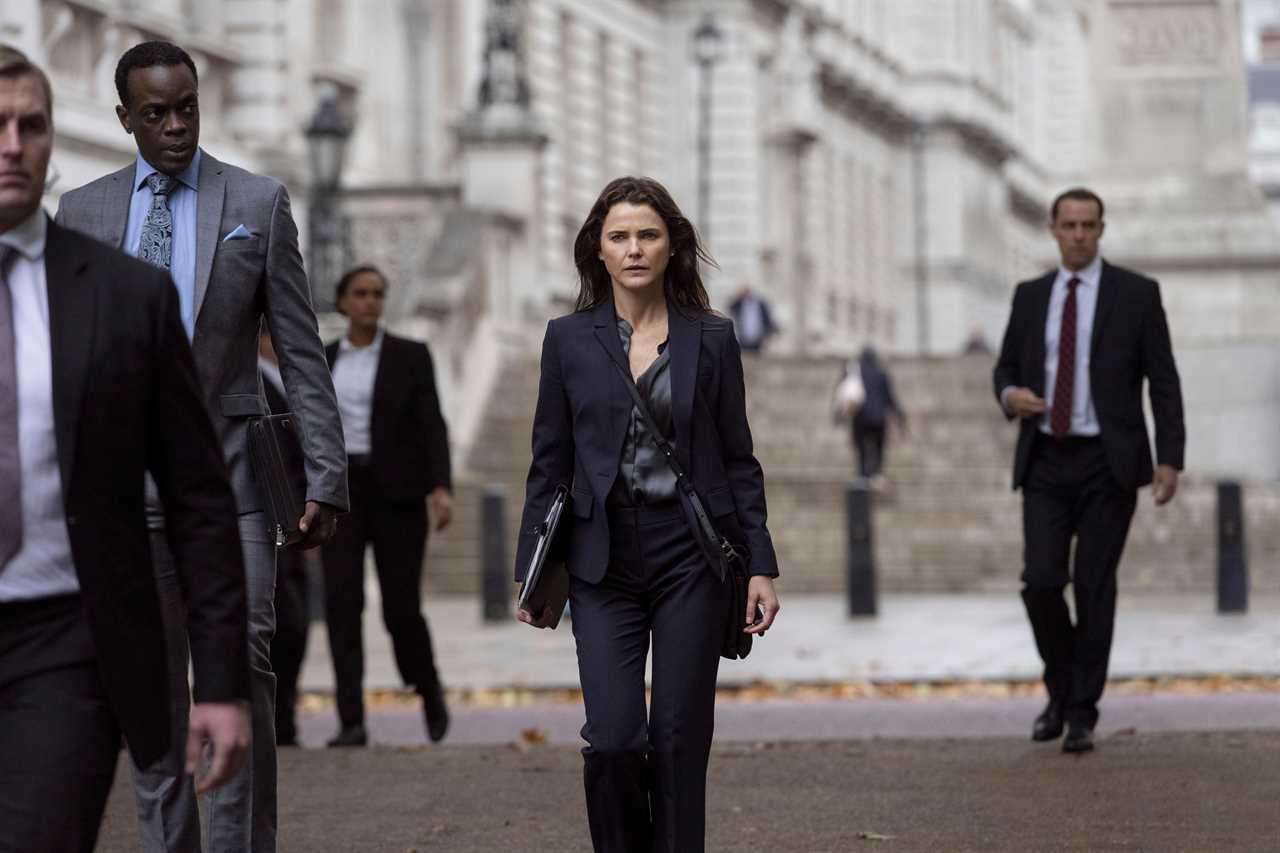
THE SHOW
The United States sends a female career diplomat to serve as its ambassador to Britain — without Senate confirmation.
Kate Wyler isn’t just a career member of the Foreign Service — she’s a very good diplomat who’s used to working in crisis zones. She was supposed to head to Afghanistan, then suddenly — as in within hours — gets sent to the United Kingdom instead as a terrible tragedy threatens war.
At the post in London, her staff fusses a great deal about policy, politics, and … her clothes and make-up.
THE REALITY
The U.K. role nearly always goes to a wealthy campaign backer of whoever is the U.S. president. The nominees have almost always been men. And you cannot skip Senate confirmation.
There are two main types of U.S. ambassadors: Career diplomats and political appointees. The latter tend to be rich campaign donors, and they tend to land in posh posts in Europe. The political appointees don’t necessarily lack foreign policy acumen, but they are viewed with skepticism by many career diplomats who’ve spent their lives immersed in international policy and worked hard to climb the ranks.
The current U.S. ambassador to the U.K., Jane Hartley, is only the second woman to hold the high-profile post — a rarity that the show notes.
That said, “the plot line about the ambassador’s clothes is far-fetched,” Phil Reeker, a former career diplomat who previously led the U.S. Embassy in London on an acting basis, wrote in an email. “There are no stylists at the embassy, although the residence staff did make sure my wardrobe was immaculately pressed every day (and so were the sheets!).”
The people involved in crafting “The Diplomat” made the career vs. political dynamic a key part of the plot.
“I loved the scene where someone asked if they are shipping their private art collection and are told ‘We’re career diplomats, we don’t have one,’” Lukens said.
But such an ambassadorship requires Senate confirmation, and that can take many months. It involves everything from vetting by the executive branch before a person is nominated to a hearing in front of the Senate Foreign Relations Committee to hoping that some senator won’t block your nomination over an issue that has nothing to do with you.
Cahn said that, after a screening in Washington, she “gave the caveat that this is the television version of what they do, with less paperwork, shorter Senate confirmation timelines, and an ambassador rerouted from Kabul to London, which would never happen. An ambassador immediately jumped in to say, ‘It happens more than you’d think!’”
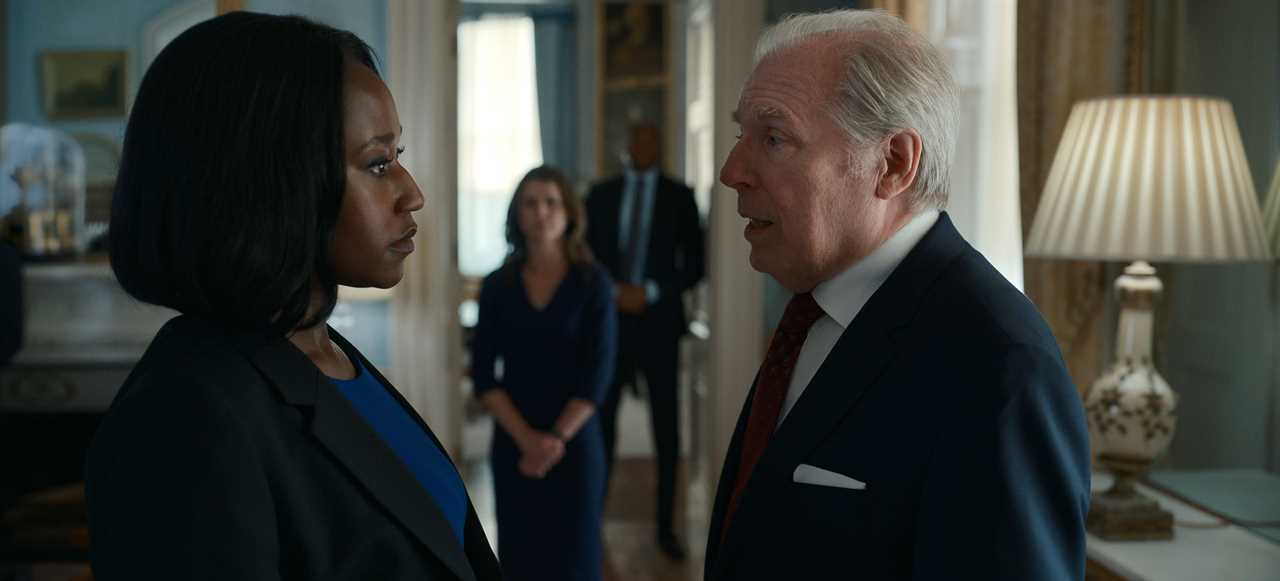
THE SHOW
The U.S. president looks to a career diplomat to serve as his vice president.
One reason Wyler is sent to Britain is for the president to see how she holds up in a high-profile post and whether she’d make a better No. 2 than the current vice president, who’s expected to resign.
When Kate learns of this, she’s told that although she may have no campaign experience, she’d be good at something called “governing” and that the president would prefer a deputy who isn’t obsessed with her political future. That said, if the president wants to keep her for a second term — and the show indicates that’s the goal — one would expect politics to still trump on-the-ground experience, as often happens in Washington.
The VP storyline helps explain a bit why a career diplomat is given such unusual access to the U.S. president and his closest aides. But most career diplomats — even many who are ambassadors — barely can get access to the secretary of State, much less the president.
THE REALITY
To win elections, presidents need running mates who attract key constituencies, especially from certain parts of the country.
Wyler has no legislative voting record, no base of support, no political ambitions. As a career diplomat, she’s trained to implement the policies of whoever is in the White House, so in theory she has no partisan bona fides. She’s pragmatic about what can be done, but pragmatism doesn’t always translate to political savvy. Can she inspire the masses? Can she hold her own on a camera-laden debate stage?
A current U.S. diplomat, who spoke on condition of anonymity because they were not authorized to speak to reporters, echoed the befuddlement, noting: “Non-partisanship is more or less baked into us from the get-go.”
Overall, the idea of a career diplomat being tapped as vice president is “preposterous,” Reeker said.
It’s unusual for even a political appointee ambassador to use the role as a springboard to first-time elected office. It’s not unusual for someone who’s held elected office to be given an ambassadorship.
THE SHOW
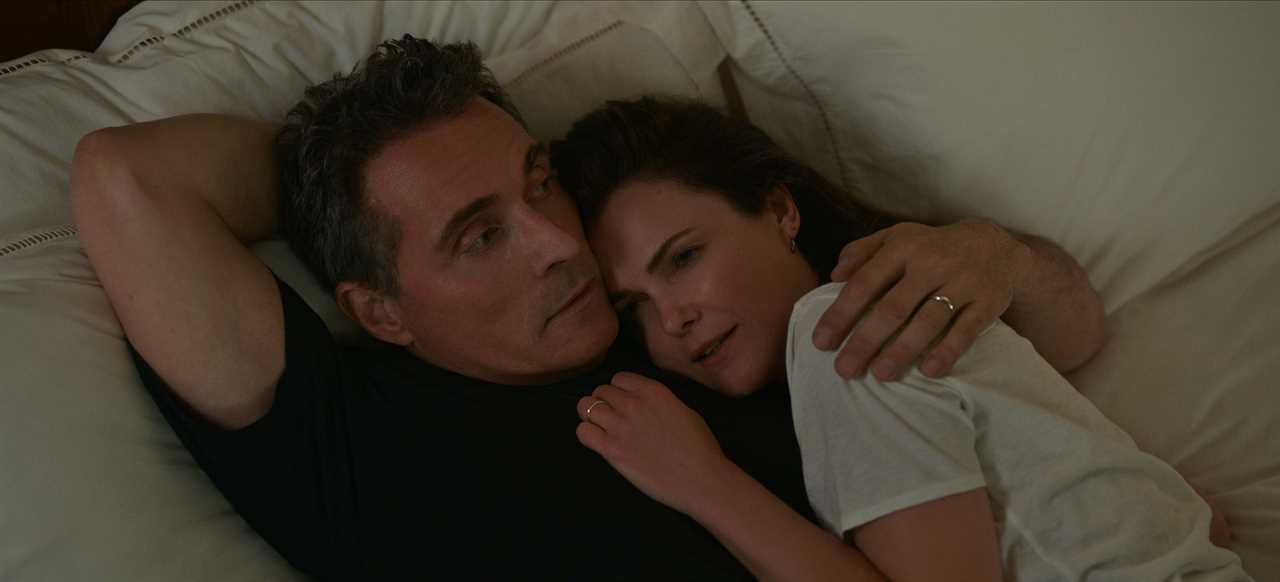
Kate Wyler is married to Hal Wyler, a swaggering former ambassador both venerated and despised in the Foreign Service. Their relationship is … complicated.
Hal has a habit of freelancing in ways that often make Kate’s life difficult, but which also can come in handy. He seems to know everyone, everywhere, even some of America’s avowed enemies. (Reeker speculated that Hal’s character may be partly based on the late Richard Holbrooke.)
Hal’s exact career status in the show isn’t entirely clear. A former ambassador himself, he describes himself mostly as “the ambassador’s wife.”
THE REALITY
Such a relationship is not impossible, though few career diplomats amass the type of sway Hal has.
U.S. diplomats do sometimes marry one another (they’re called “tandem couples”), and as long as one is not in the other’s chain-of-command, they can be at the same post. Married diplomats can even be ambassadors at the same time, though obviously in different places.
But most U.S. diplomats do not achieve the rank of ambassador, and those who do rarely get more than one ambassadorship. Hal is described as someone who’s been an ambassador for a long time, which doesn’t quite make sense.
Managing the role of an ambassador’s disruptive spouse sometimes falls to the No. 2 at an embassy, known as the deputy chief of mission. Lukens said the show depicts that exhausting position well. “He is expected to manage the embassy and steer the ambassador,” Lukens said.
THE SHOW
The United States is by Britain’s side when British troops are killed in an apparent attack. But NATO is nowhere?
Much of the show is devoted to Kate Wyler’s efforts to hold back British and American leaders’ rush to blame and retaliate against Iran over the attack on U.K. troops.
But although the show makes sure to emphasize that Britain has left the European Union, it seems to forget that Britain remains a part of the NATO military alliance. The latter is much more relevant in a situation like this.
THE REALITY
NATO is likely to play some sort of role if one of its members is attacked — it’s a defensive alliance built around the principle, known as Article 5, that an attack on one member is an attack on all.
The exact details of any attack make a difference in how a country or an alliance will respond. But there’s no question NATO would get involved in a crisis that involves the death of dozens of British troops — even if it’s just to hold a meeting or show solidarity.
Yet the show suggests that even France — another NATO member — has to be cajoled into helping find the culprit. It also seems to suggest that Turkey and Iran are allies. Turkey, too, is a member of NATO, and its complicated relationship with Iran doesn’t amount to an alliance.
Still, Barbara Stephenson, another former U.S. deputy chief of mission in London, praised the show for its depictions of the tension between managing global crises and domestic politics.
“That scene … where the [British] foreign minister acknowledges the grave consequences of overshooting the mark on accusing Iran but declines to use his capital to constrain the prime minister is just brilliant,” Stephenson wrote in an email. “It elegantly captures the way political considerations can trump national and international security considerations.”
THE SHOW
The United States is trying to reopen its embassy in Afghanistan, even as it acknowledges the Taliban are in charge.
Before she’s sidetracked to London, Wyler is supposed to be heading to Afghanistan to reopen the massive embassy there, which shuttered in 2021 as the country fell to the Taliban militia.
Although the show doesn’t take viewers to Afghanistan, some of its most affecting moments — the ones that make you remember why diplomacy matters — are about that country, not Britain.
THE REALITY
The United States is nowhere near reopening its diplomatic mission in Afghanistan right now.
In recent days, the United States has reiterated that it has no intention of formally recognizing the Taliban government, and the Islamist movement was not invited to U.N.-led talks on Afghanistan this week. So no U.S. embassy is reopening there anytime soon.
That said, there are U.S. diplomats who deal with Afghanistan — most just do it from an office in Qatar or Washington, D.C. And — Taliban misogyny or not — the still-existing U.S. Mission to Afghanistan is led by a woman.
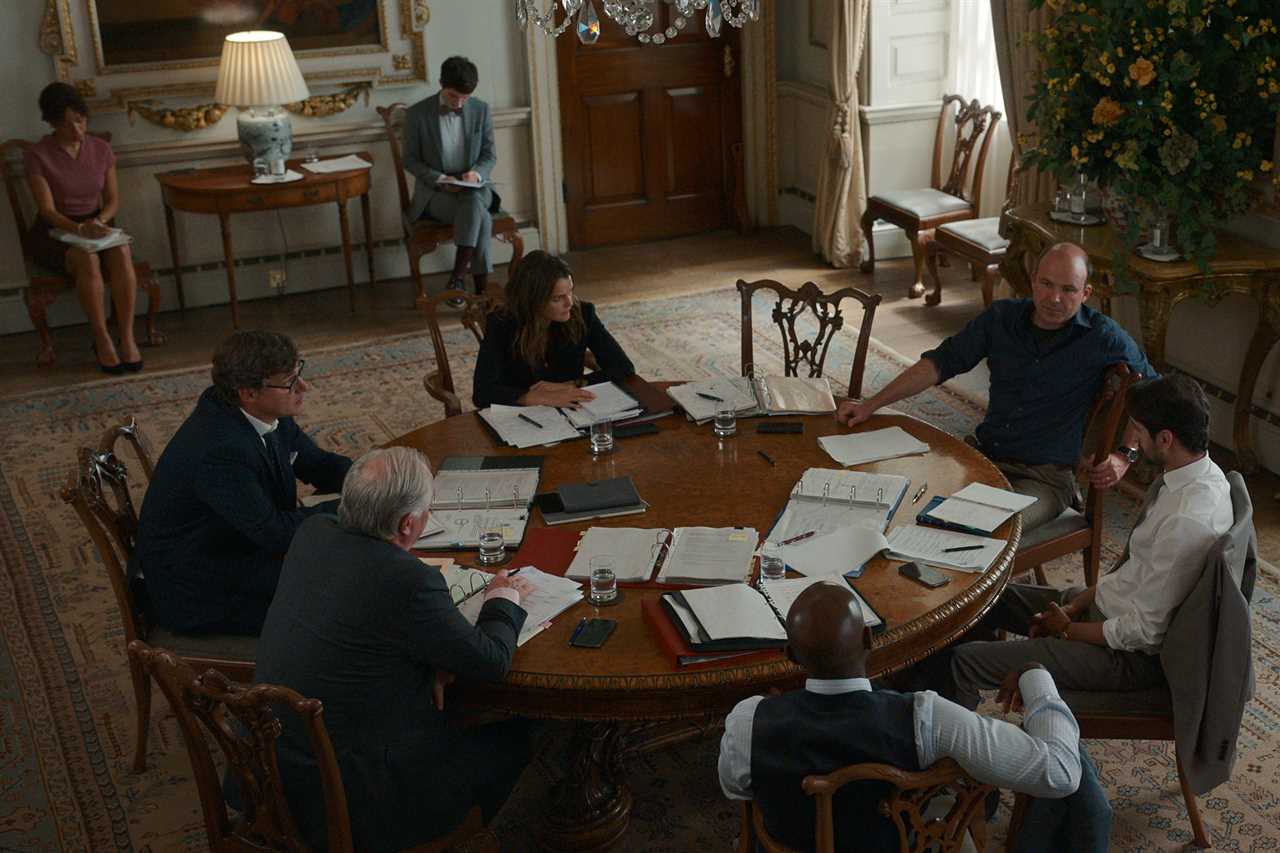
THE SHOW
The British prime minister is a really, really bad guy.
Nicol Trowbridge fairly quickly emerges as the villain of the piece. An erudite but overbearing, hard-drinking, misogynist, the character appears loosely based on Boris Johnson, with a touch of Donald Trump and a splash of Vladimir Putin thrown in. At various points he suggests he will “rain hellfire” on Iran, bomb Russia, and perform a missile strike on a private mercenary organization seemingly based on the Wagner Group, before proposing conducting an extrajudicial assassination on its leader.
THE REALITY
Parliament would intervene in two seconds to remove a prime minister who had gone this rogue.
While an American president is able to take many executive actions without any weigh-in from Congress, a British prime minister can be dislodged almost immediately if they lose the support of MPs in the House of Commons. Just ask Liz Truss, who was ejected after only 49 days in office last fall, and she only bombed the economy, not the Russians.
A PM who was talking so recklessly about launching the U.K. into a military confrontation with a nuclear power would likely be challenged in a vote of confidence within hours — particularly if there was a dishy, sensible, potential alternative leader such as Foreign Secretary Austin Dennison waiting in the wings.
THE SHOW
The British prime minister is prepared to blow up the “special relationship.”
The PM is so infuriated by American actions he declares that Britain and the U.S. should no longer be considered close allies. At one point he uses a speech to angrily tick off his American counterpart President William Rayburn, going public with the top-secret information that the Americans had backtracked on a promise to send a battle carrier to the Gulf. Trowbridge is often rude and dismissive of Kate, who as ambassador is America’s official representative in the U.K.
THE REALITY
The alliance between the U.S. and U.K. lies at the cornerstone of British foreign policy. A PM would never deliberately undermine it.
No mainstream British politician would risk offending the United States, particularly in public. This has been the reality for all of the 20th and 21st centuries and is doubly true since Brexit, now that the U.K. needs its superpower friend more than ever. It would be implausible for any British PM, and particularly one from the Conservative right of the spectrum as Trowbridge is, to undermine the “special relationship.” U.S. ambassadors and other staff are always treated with the utmost courtesy by those in the U.K. government.
One senior British diplomat said: “If the Americans ask anything of the British government, they get it, immediately. A British Prime Minister would never, ever act in this way.” The diplomat was granted anonymity to speak about a matter much more frivolous than their daily work.
THE SHOW
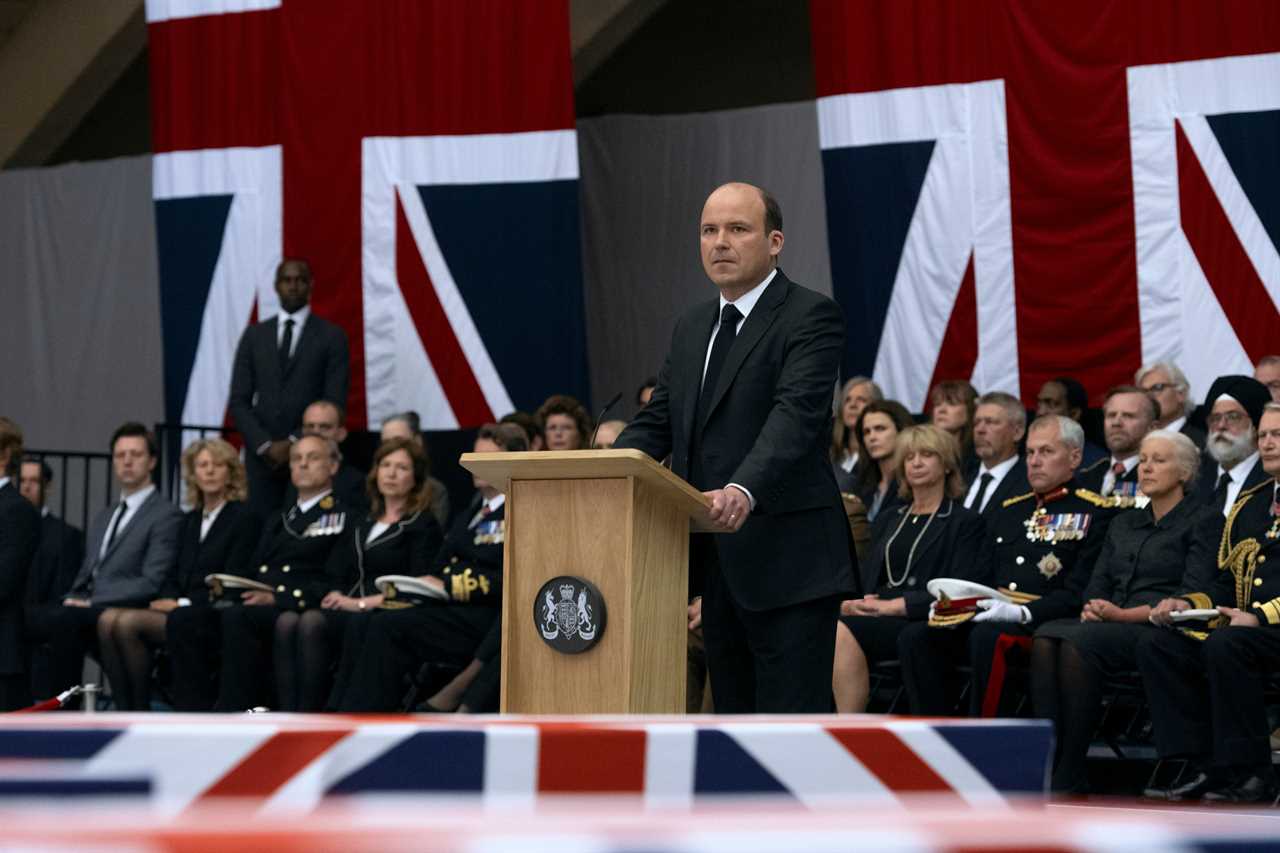
The plot pivots on the idea that Prime Minister Trowbridge wants to look tough in order to win a local election in Scotland.
Kate is told by a Trowbridge ally that losing the by-election would give Scottish nationalist MPs a majority, triggering a referendum that would lead to Scottish independence which in turn would be followed by the loss of both Northern Ireland and eventually Wales. The fictional PM is so eager to avoid this train of events that he is prepared to carpet bomb Iran in order to look tough and so persuade Scottish voters to back him and maintain the union.
THE REALITY
Voters rarely cast ballots based on foreign affairs — and anyway, that’s not how the independence process would work.
As in the U.S. and the rest of the U.K., polls show foreign policy is far from top priority for Scottish voters. If Trowbridge really wanted to hang on to a seat there, he would be better off throwing money at the problem, investing in services or boosting the local economy.
The idea that losing a single parliamentary seat would prove a tipping point in the independence campaign is unrealistic, because the nationalist SNP already holds the vast majority of constituencies, 45 out of a possible 59, and has done so for more than a decade. This doesn’t mean there will be a referendum any time soon, because Westminster considers the matter closed, after a “once in a generation” vote was held in 2014 which confirmed the status quo. Loss or victory in one more seat wouldn’t make any difference.
THE SHOW
The French are reluctant to allow U.K. special forces on their territory to arrest Roman Lenkov but agree after Kate intercedes.
In the wake of Brexit, the French interior minister isn’t inclined to do the Brits a favor, and refuses to allow U.K. special forces to take part in the mission to arrest the Russian Lenkov in his villa in the south of France.
But when Kate explains she would be doing the Americans a good turn, the French minister relents — even when she finds out the mission will be an assassination not an arrest.
THE REALITY
Yes, like the British, the French are generally keen to keep on the good side of the Americans.
A French diplomat London Playbook spoke to was undecided how this scenario would play out in real life, but thought it would be unlikely that Brits would be permitted to put special forces on the ground — unless the Americans requested it. “It’s hard to say, but if that was the scenario then, yes, maybe?”
THE SHOW
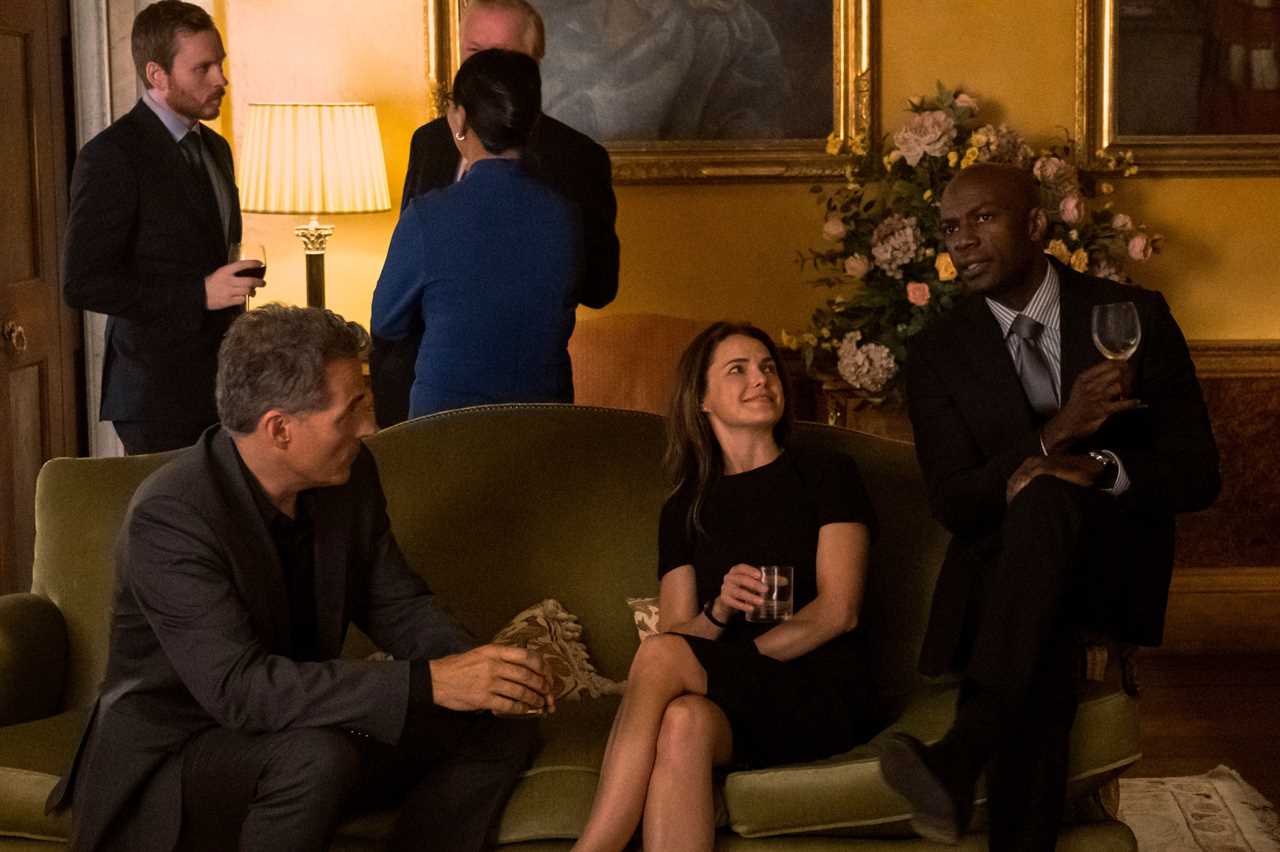
All the Brits in the show are extremely well-spoken.
From the politicians to the aides to the officials, pretty much every British person in “The Diplomat” talks as if they were born with a silver spoon in their mouth.
THE REALITY
While most Brits are not posh, politics is about the only remaining arena where speaking like King Charles is still more common than not.
Most U.S. television shows are frustrating for British viewers, because they tend to portray every character as, well, posh. But with three out of the last five PMs having gone to elite private schools, Westminster is pretty much still dominated by posh people — “The Diplomat” gets it right on this front.
----------------------------------------
By: Nahal Toosi and Rosa Prince
Title: ‘My job is not nearly as sexy’: The hits and misses of Netflix’s ‘The Diplomat’
Sourced From: www.politico.com/news/2023/05/03/the-diplomat-opinion-reality-00094906
Published Date: Wed, 03 May 2023 03:30:00 EST
Did you miss our previous article...
https://consumernewsnetwork.com/politics-us/is-it-time-to-pass-a-constitutional-amendment-to-remove-incapacitated-senators






